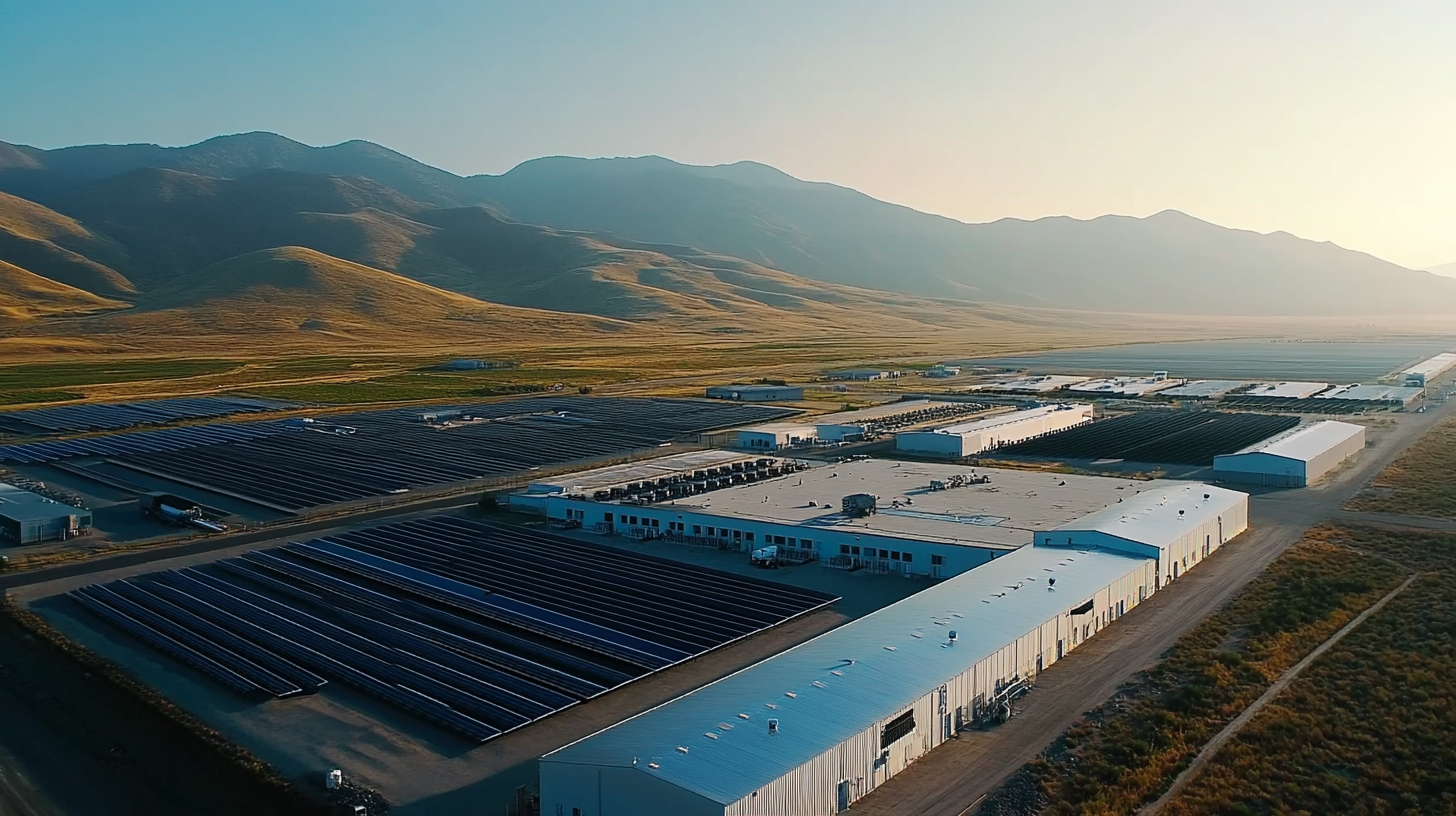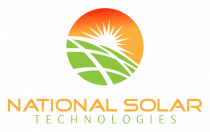Discovering Reliable Suppliers for Solar Power Solutions Around the World
In the last few years, the world has seen an ever-increasing movement toward renewable energy, where solar power is sitting on the front line of energy solutions. Countries are busy trying to meet climate goals and shrink their carbon footprint, thereby amplifying the demand for solar power solutions that are reliable and efficient. However, sourcing good-quality products and dependable suppliers still pose considerable challenges for individuals and businesses wanting to tap into solar energy. It is vital to find the right suppliers that appreciate quality, innovation, and sustainability to make eventual solar projects successful.
From this post, we will look at the different ways in which partners of solar power solution suppliers across the globe could be identified and developed. Key areas like certification, product range, and product/service support that could affect the selection process will be examined. The article aims to set out lessons learned, best practices, and examples of successful supplier relationships to enable stakeholders to make better decisions. Follow us on this journey to evaluate how the role of reliable suppliers becomes evident in the emerging solar power sector: a pathway to a greener and more sustainable existence.

Identifying Key Criteria for Selecting Solar Power Suppliers
It is very important to find out what key factors should be considered while identifying reliable solar power solutions suppliers globally. This creates an urgency for evaluating suppliers according to the stability of their geographical locations and their compliance to restrict the increase in costs that may come by way of tariffs from the geopolitical landscape like the 41.56% tariff recently imposed by the United States on solar products from China and tariffs on imports from Malaysia, Thailand, Vietnam, and Cambodia. Such suppliers would cost much for businesses willing to invest in solar technologies, as tariffs will not affect them because they come from less tariff-affected regions. On the other hand, the extremely fast-growing solar market in Indonesia harbors a certain complexity. Local firms now buy Chinese solar parts, resulting in an explosive presence of China-made products in the market. Such a situation further necessitates an understanding of what should be appraised in suppliers, particularly with the product quality. Being adaptable to, and building rapport with, local industries would ensure a supplier's retrieval from any market circumstance. The ability to read the local market landscape enhances a supplier's reliability. Sustainability would become yet another factor significantly considered in supplier appraisal. Some six months ago, a report on improvements in sustainability within supply chains came up with recommendations for reduction of greenhouse gases and uptakes in recycled material inputs. Supply agreements with those suppliers could improve their reliability in the entire industry, as not only will they contribute to global sustainability efforts, but they will also find a ready market with an increasingly pro-green clientele. The pressure to pick suppliers who resonate with political correctness becomes more and more relevant as these companies try to align themselves with the goals of reducing carbon footprints.

Exploring Global Regions with Leading Solar Suppliers
To secure sustainable supplies and ensure an increased market presence, many global regions have established an environment that is conducive for different suppliers. In this context, every region provides distinct benefits due to different energy requirements and energy consumer attitudes. In North America, companies are carrying innovative solar technology development, given a good regulatory structure and strong renewable energy investment. The states of California and Texas are home to leading companies for high-efficiency solar panels, energy storage systems, and more advanced installations.
Europe, with countries such as Germany and Spain, has indeed made its mark as pioneers with other countries in the adoption of solar energy. German manufacturers are noted for their engineering excellence and commitment to sustainability; they produce solar products having long lifetimes and high efficiency. Spain's sunny climate has helped nurture a booming industry in large-scale photovoltaic projects, thereby making Spain another big player in the solar market.
In Asia, China controls every link in the solar supply chain, thus being on the front of every positive thing connected to solar-from capacity to technological development. With several manufacturers in the country implementing drastic levels of automation coupled with efficiency in economies of scale, Chinese suppliers are effectively supplying solar modules and inverters at the lowest possible prices. Also, emerging solar markets in India and Japan indicate quite diverse approaches in the region that seek to focus on localized solutions and community efforts to promote solar access.
These regions give the chance for individuals and companies to seek reliable solar equipment suppliers tailored to their particular energy ambitions, be it in support of solar for residential applications or instead concerning applications for commercial-scale solar. Each region's unique offering makes a living contribution to a diverse global marketplace that, in return, continually advances solar technology under globalization and sustainability.

Evaluating Supplier Reliability Through Customer Reviews and Certifications
One of the most critical elements concerning the global solar power solutions marketplace is reliability for its suppliers. A way to judge such reliability is customer reviews and industry certifications. A generally known fact is that suppliers will have some previous customer responses about their product registration. Positive customer feedback would be assuredly required for it, as that would indicate the supplier's consistency in delivering quality goods & services; thus, it would be counted as a trustworthy long-term partnership for an organization.
Recent developments in technology are witnessing certification as an avenue through which suppliers are rated on their competence. Like a known telecom company, it was given a certification for network enablement to allow its satellite communication modules to work on all other networks easily. Such credentials go a step further by showing not only that the particular products are technically able but also demonstrate how industry-conformity is important to the supplier. Hence, any entity that decides to choose a supplier with recognized certifications would be reducing risk and making informed decisions.
New global organizations have now started emerging that solely deal with certifications for functional safety. Such organizations have brought about new dimensions for suppliers in various fields like automotive and aerospace. The country in which such bodies is found has top accessibility to international experts for establishing credible and high-quality certification processes. They also serve as potential collaborations with a culture of quality and safety. By going through all those stringent standards, suppliers can demonstrate their reliability. This will bring them much closer to their potential partners in the solar domain.

Understanding Supply Chain Dynamics in the Solar Energy Sector
Understanding the dynamics of supply chains in solar energy will enable businesses to find the best possible suppliers. The global solar industry has undergone an incredible change in just about a decade due to the influence of policies, technology, and growth in demand. Solar energy capacity has grown at over 20% a year since 2010 according to the International Energy Agency (IEA), and in 2022, about 190 GW of new solar capacity was added to the world. Such growth necessitates sound supply chains that can withstand the increased rate of production and installation.
As demand grows, the supply chain must deal with issues such as material shortages and inefficiencies in logistics. For example, research from Wood Mackenzie shows polysilicon prices surged by over 500% in 2021 alone, and this situation has serious consequences for module costs and overall project economics. This is further complicated by the current geopolitical unrest and trade barriers that have made it much more complicated for companies to get their source materials and components. The acceptable risk profile would be having a wide variety of companies to do business with while developing the suppliers' supply bases.
Regional dynamics have an important bearing on selecting suppliers. For instance, while China's size and scale are most impressive when it comes to production of solar panels and their components, there's increasing activity in markets such as the U.S. and Europe regarding localized supply chains focused on energy security and sustainable sourcing. According to a report published by BloombergNEF, the U.S. solar market is expected to see a 53% increase in domestic manufacturing capacity within five years, as incentives by government agencies push for local sourcing to stabilize supply chains and create jobs, enhancing economic resilience in renewable energy.
Innovative Technologies from Top Solar Suppliers Worldwide
Rapid advancements are happening in the solar power industry as newfangled innovative techniques of famous suppliers settle their market needs around the world. For instance, in a report by the International Energy Agency (IEA), global solar power capacity went beyond the 700 GW mark in 2020. It is expected to grow by almost 25% every year till 2025. With this immense growth, it becomes important for reliable suppliers, who still go ahead to develop any technology for improved efficiency and cost reduction.
Nowadays, top solar suppliers integrate state-of-the-art technologies like bifacial panels and advanced energy storage systems that use both sides of the panel to capture sunlight for its customers. Alongside, they bask in the promise that innovation is making all possible efforts to energize their feasibility in the residential setup. Research from Bloomberg New Energy Finance reveals that since 2010 the average price of solar photovoltaic (PV) systems has dropped by 82%. Innovations introduced by the henchmen of the market create or add up to being one of the important factors towards the reduction of costs in solar energy.
In addition, JinkoSolar and First Solar are typical cases of how the world moves towards sustainable energy solutions-an investment in R&D by these two companies for not only breaking new islands in their new generation modules which boast efficiencies over 22% but also formulating performance standards. The future of the renewable energy solutions must have indeed co-created with the strides picked by creative suppliers and new technological innovations toward a global scale sustainable energy future.

